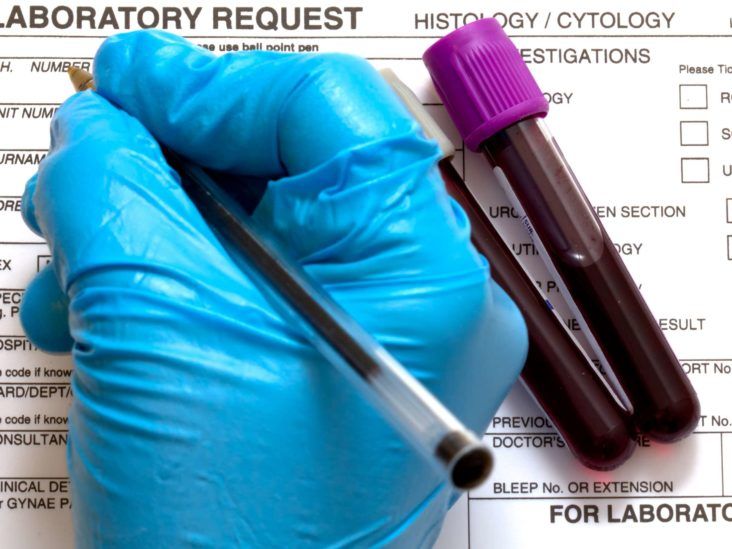Have you ever wondered what those tiny basophils in your blood test results actually mean? If you're scratching your head trying to figure out the "normal range for basophils," you're not alone. Basophils might sound like something out of a sci-fi movie, but they're actually an essential part of your immune system. These little guys play a crucial role in protecting your body from invaders like allergens and infections. So, let's dive in and explore everything you need to know about basophils and their normal range!
When it comes to health, understanding your blood work is key. Basophils are just one piece of the puzzle, but they can tell you a lot about what's going on inside your body. Whether you're dealing with allergies, inflammation, or just curious about your overall health, knowing the normal range for basophils can give you valuable insights. Stick around because we're about to break it all down for you!
Before we jump into the nitty-gritty, let's set the stage. Basophils make up only a tiny percentage of your white blood cells, but they pack a punch when it comes to defending your body. They release histamine and other chemicals that help fight off allergens and infections. But how do you know if your basophil count is within the normal range? We'll answer that question and more as we explore this fascinating topic.
Read also:Unveiling The Mystery Black Dahlia Crime Scene Images That Still Haunt Us
What Are Basophils and Why Do They Matter?
Alright, let's start with the basics. Basophils are a type of white blood cell that plays a critical role in your immune system. Think of them as the body's security guards, patrolling for anything suspicious. When they detect an allergen or infection, they spring into action, releasing chemicals like histamine to neutralize the threat. Pretty cool, right?
But why should you care about basophils? Well, if your basophil count is too high or too low, it could indicate an underlying health issue. For example, elevated basophil levels might point to an allergic reaction, parasitic infection, or even certain types of leukemia. On the flip side, a low basophil count could signal chronic inflammation or another medical condition. So, keeping an eye on your basophil levels is essential for maintaining good health.
Basophils in Action: How They Protect Your Body
Now that you know what basophils are, let's talk about how they work. When an allergen enters your body, basophils release histamine, which causes the classic symptoms of an allergic reaction, like sneezing, itching, and swelling. While these symptoms might be annoying, they're actually your body's way of protecting itself. In addition to histamine, basophils also release other chemicals that help recruit more immune cells to the scene, ensuring the threat is neutralized.
But basophils don't just deal with allergies. They also play a role in fighting off infections, particularly parasitic ones. When a parasite invades your body, basophils release chemicals that help destroy it. So, while they might be small in number, basophils are mighty in their ability to protect your health.
Normal Range for Basophils: What You Need to Know
So, what exactly is the normal range for basophils? Typically, basophils make up about 0.5% to 1% of your total white blood cell count. In absolute terms, this translates to about 0 to 300 basophils per microliter of blood. However, it's important to note that these numbers can vary slightly depending on the lab and the individual. Factors like age, gender, and overall health can all influence your basophil count.
If your basophil count falls outside the normal range, don't panic just yet. A single abnormal result doesn't necessarily mean something is wrong. Instead, it's a signal for your doctor to investigate further. They might order additional tests or monitor your basophil levels over time to get a clearer picture of what's going on.
Read also:Is John Travolta Gay Unpacking The Rumors Facts And Truth
Factors That Affect Basophil Levels
Several factors can affect your basophil levels, both positively and negatively. For example, stress, smoking, and certain medications can all cause your basophil count to fluctuate. On the flip side, a healthy diet, regular exercise, and good sleep hygiene can help keep your basophil levels in check.
It's also worth noting that certain medical conditions can impact your basophil count. For instance, people with chronic inflammatory diseases like rheumatoid arthritis or lupus might have lower basophil levels. Meanwhile, those with allergies or parasitic infections might see an increase in their basophil count. Understanding these factors can help you and your doctor interpret your blood test results more accurately.
Signs Your Basophil Levels Are Off
Now that you know the normal range for basophils, how can you tell if your levels are abnormal? Well, symptoms can vary depending on whether your basophil count is too high or too low. If your basophil count is elevated, you might experience symptoms like:
- Itching or hives
- Sneezing or runny nose
- Swelling or puffiness
- Gastrointestinal issues
On the other hand, if your basophil count is low, you might notice:
- Fatigue or weakness
- Joint pain or stiffness
- Weight loss or loss of appetite
- Recurrent infections
Of course, these symptoms can also be caused by other conditions, so it's important to consult your doctor for an accurate diagnosis.
Testing for Basophil Levels
If you're concerned about your basophil levels, your doctor can order a complete blood count (CBC) test to check them. This test measures various components of your blood, including your white blood cell count and the percentage of basophils. The results will help your doctor determine if your basophil levels are within the normal range or if further investigation is needed.
In some cases, your doctor might order additional tests, such as a differential white blood cell count or a bone marrow biopsy, to get a more detailed picture of your basophil levels. These tests can provide valuable insights into what might be causing any abnormalities in your basophil count.
Treatment Options for Abnormal Basophil Levels
If your basophil levels are outside the normal range, don't worry—there are treatment options available. The approach will depend on the underlying cause of the abnormality. For example, if your basophil count is elevated due to an allergic reaction, your doctor might prescribe antihistamines or other allergy medications. If a parasitic infection is to blame, they might recommend anti-parasitic drugs.
In cases where a low basophil count is linked to chronic inflammation or another medical condition, treating the underlying issue can help restore your basophil levels to normal. This might involve lifestyle changes, medication, or other therapies. Your doctor will work with you to develop a treatment plan that addresses your specific needs.
Preventing Abnormal Basophil Levels
While you can't always prevent abnormalities in your basophil levels, there are steps you can take to support your immune system and maintain healthy basophil levels. Eating a balanced diet rich in fruits, vegetables, and whole grains can provide your body with the nutrients it needs to function properly. Regular exercise and good sleep hygiene can also help keep your immune system in top shape.
Additionally, avoiding triggers like stress, smoking, and excessive alcohol consumption can reduce the risk of fluctuations in your basophil count. And don't forget to stay up-to-date with your routine medical check-ups so that any issues can be caught early.
Living with Abnormal Basophil Levels
Living with abnormal basophil levels doesn't have to be a scary experience. With the right treatment and support, you can manage your condition and maintain a good quality of life. It's all about working closely with your healthcare team to monitor your basophil levels and address any underlying issues.
Remember, knowledge is power. The more you understand about your basophil levels and how they affect your health, the better equipped you'll be to make informed decisions about your care. So, take charge of your health and don't be afraid to ask questions or seek second opinions if needed.
Support Resources for Managing Basophil Levels
If you're looking for additional support or resources to help you manage abnormal basophil levels, there are plenty of options available. Online forums and support groups can connect you with others who are going through similar experiences. And don't forget about reputable websites and organizations that provide reliable information on immune system health and blood disorders.
Your healthcare provider can also be a valuable resource, offering guidance on managing your condition and connecting you with specialists if needed. So, don't hesitate to reach out for help when you need it.
Conclusion: Take Control of Your Health
Understanding the normal range for basophils is an important step in taking control of your health. By monitoring your basophil levels and working with your healthcare team, you can catch any issues early and take steps to address them. Whether it's managing allergies, fighting off infections, or dealing with chronic conditions, basophils play a crucial role in keeping you healthy.
So, the next time you see "basophils" on your blood test results, you'll know exactly what they mean and why they matter. And if you're concerned about your basophil levels, don't hesitate to talk to your doctor. They're there to help you navigate this complex world of health and wellness.
Before you go, we'd love to hear from you! Do you have any questions or experiences with basophil levels you'd like to share? Leave a comment below or check out our other articles for more insights into health and wellness. Stay informed, stay healthy, and keep those basophils in check!
Table of Contents
- What Are Basophils and Why Do They Matter?
- Normal Range for Basophils: What You Need to Know
- Signs Your Basophil Levels Are Off
- Treatment Options for Abnormal Basophil Levels
- Living with Abnormal Basophil Levels
- Preventing Abnormal Basophil Levels
- Support Resources for Managing Basophil Levels


